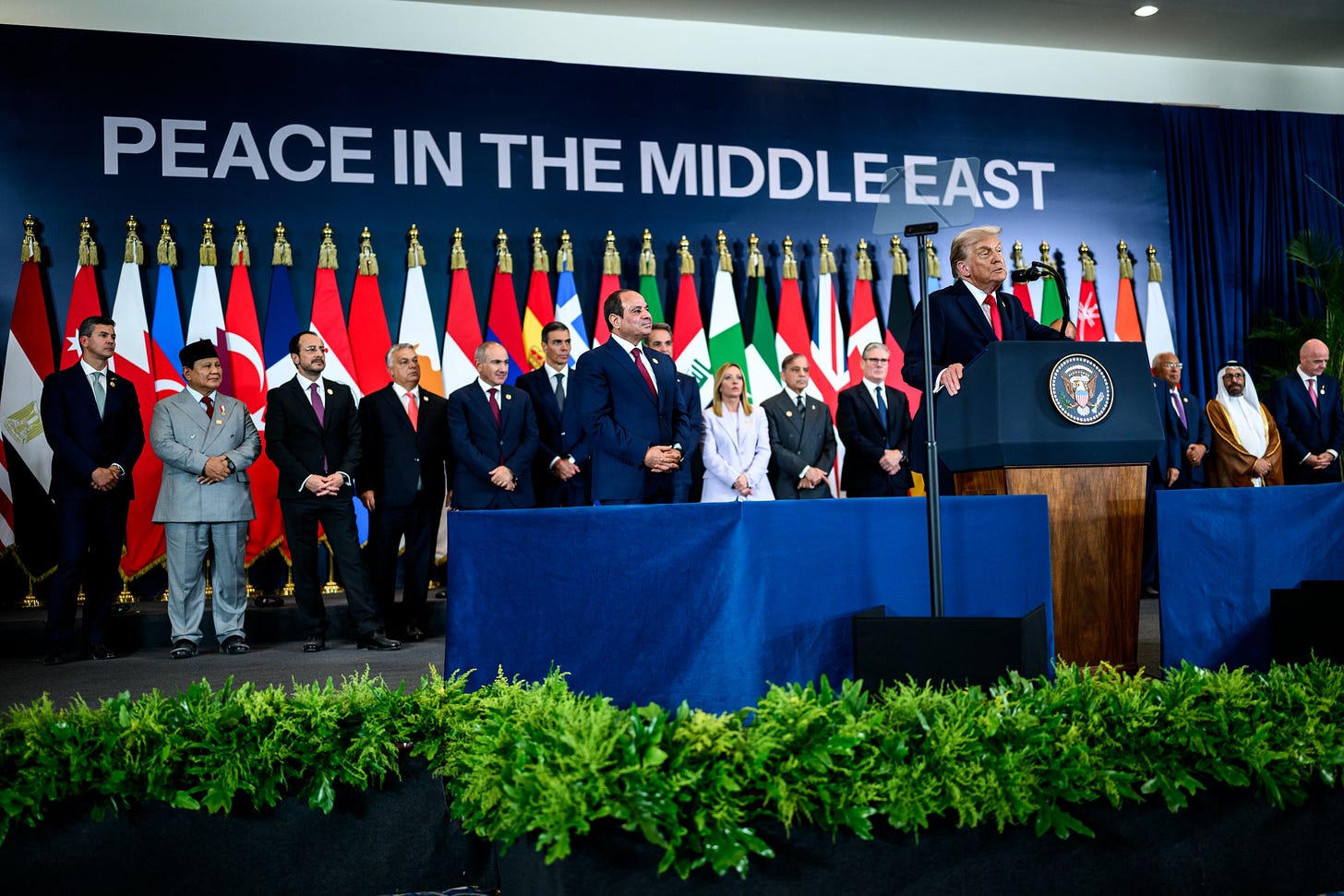President Trump has proven that he can talk the talk of striking a deal with Iran, but not that he can walk the walk.
Ahead of and during his tour of the Middle East to tout his brokering of a ceasefire in Gaza, Trump has been talking the talk again, sounding a good bit like he did before he gave a green light to Israeli Prime Minister Benjamin Netanyahu to strike Iran in June.

Last week, President Trump stated “Iran has informed us that it now wants to work on peace, and [the Iranians] said they are totally in favor of this deal.” He added that his administration would “cooperate with Tehran” in this effort and expressed hope that Iran could “rebuild its country.” Speaking before the Israeli Knesset, Trump doubled down, saying “You know what would be great, if we could make a peace deal with [Iran]. Would you be happy with that? Wouldn’t it be nice? Because I think they want to. I think they’re tired.”
Adding to this pro-peace rhetoric, President Trump’s administration extended an offer to Iran to attend the Gaza ceasefire summit in Sharm El-Sheikh, Egypt, which could be interpreted as a notable - and all too rare - olive branch between Washington and Tehran. Iran, however, declined. Foreign Minister Abbas Araghchi wrote “While favoring diplomatic engagement, neither President Pezeshkian nor I can engage with counterparts who have attacked the Iranian People and continue to threaten and sanction us.” He welcomed any step that “ends Israel’s Genocide in Gaza” and asserted that “Iran is not after Forever Wars —particularly on the dime of its purported allies— but seeks Forever Peace, Prosperity, and Cooperation.” Some observers sharply criticized Iran’s decision, warning that Iran was missing a critical opportunity. Setting aside the triumphalist tenor of the meeting - which would have opened any Iranian participation to sharp domestic criticism for no gain on core security interests - this offer took place amid an enormous trust deficit. Not only does Iran still feel badly burned from the last time it engaged in negotiations - which ended in bombing - but Iran has received no indications that President Trump is willing to back off from maximalist conditions that would render new nuclear negotiations fruitless.
More than four decades of bad blood have made U.S.-Iran relations one of the thorniest international challenges to solve, and the easiest to devolve. If Trump is serious, he can’t just extend an offer to accept Iran’s surrender - which Iranian leaders would never accept. He needs to do the hard work of negotiating with tradeoffs, such as putting serious sanctions relief on the table, indicating privately that he will continue to enforce the Israeli-Iranian ceasefire, and revisiting creative solutions to Iran’s insistence that it will not surrender any of its perceived rights under the Non-Proliferation Treaty.
Such an approach, paired with his pro-peace rhetoric, could open serious opportunities for negotiations, and put a Trump-Iran deal within reach.
Iran, as well, is faced with two paths - the first is to rely solely on military deterrence to thwart those in Tel Aviv and Washington who want to reopen the June war. Yet military deterrence alone did not stop Israel from attacking first on three separate occasions throughout the course of the war in Gaza.
Iran, while far from defenseless, is out gunned, the forces aligned with it are either small or distracted by bigger issues and its economy is trapped in the vice of crushing sanctions.
The second path is for Iran to engage seriously to find a way out of the security and economic trap it has been mired in for the past seven years. President Trump is the only one who can make a deal with Iran for the foreseeable future. While Iran is a proud nation and negotiating with Trump is not without risk, closing the door to talks entirely risks ensuring a slide back to war.
A path is available for negotiations, despite all the effort over the years to obstruct it and deliver the U.S. and Iran to endless war. Thus far, Trump and Iran have remained far apart with only minimal efforts to bridge the gaps.


